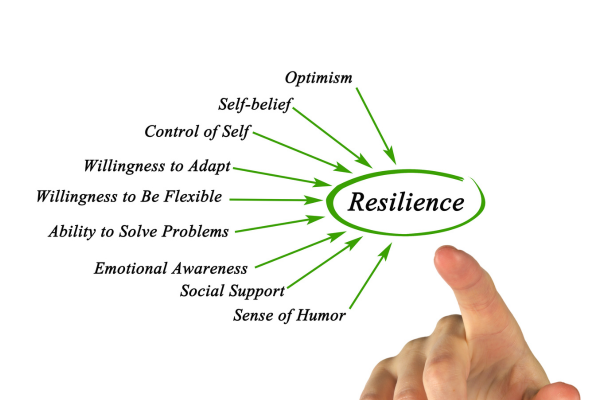Well, the truth is that the journey through parenthood is full of amazing experiences, emotional heights, and the kind of love that knows no bounds. However, it is also a rollercoaster of emotions, challenges, and unexpected twists. Every parent has moments when they feel overwhelmed, questioning their abilities, or wondering how they’ll make it through yet another tantrum, sleepless night, or difficult conversation. Such moments are characterised by the testing of emotional resilience—the ability to stay strong and bounce back from adversity.
How to build emotional resilience as a parent? Can you take care of your own emotional well-being and, at the same time, remain a stable, loving person your children can rely on in the most difficult times? Let’s explore this together.
1. Acknowledge Your Feelings
The first step in modelling proper emotional resilience is that of identifying your feelings. Parenthood is associated with a variety of feelings, with anger and guilt at one end of the spectrum, and happiness and worry on the other end. Sometimes you can feel lost or a little overwhelmed, and that is normal.Suppressing these emotions can make them build up, eventually leading to burnout.
Accept your emotions as valid and be kind to yourself on those tough days. The trick is to not allow these moments to define you. Taking more than a moment to acknowledge your feelings allows you the opportunity to actually deal with them healthily.
2. Practice Self-Compassion
As parents, we forget to be kind to ourselves. It can feel like the whole world depends on you to “get it right.” Perfection; however, is not what we seek—progress is. There is no perfect way of being a parent, it is a continuous learning experience and you will make mistakes. What matters is how you respond to those mistakes.
Instead of being hard on yourself when things go wrong, practice self-compassion. Treat yourself with the same kindness and understanding you would offer to a close friend. Remember, you’re doing the best you can, and that’s enough.
3. Develop a Support System
You do not have to run solo. But by finding a good support circle (your own family, friends, even other parents), it becomes easier. Maybe just being able to talk to someone who “gets it” can be incredibly comforting.
Part of building your support system means being willing to ask for help when you need it. There’s no shame in leaning on others when things get tough—after all, it takes a village to raise a child.
4. Stay Mindful and Present
In the chaos of daily life, it’s easy to get lost in the whirlwind of tasks, responsibilities, and future worries.Mindfulness is a great tool that ensures emotional resilience. You can also keep anxiety and stress at bay by being present, focusing on the moment here and now.
Spend a few minutes each day doing deep breathing, grounding and being in the present. In addition to keeping you in a state of calm, this habit allows you the space needed to appreciate some sweet parenting moments–those precious, fleeting moments you don’t want to miss.
5. Embrace Imperfection
Perfection is an illusion, and trying to achieve it can leave you feeling drained and inadequate. It is accepting that you and your children, and your parenting journey are beautifully imperfect—that life comes with fabulous highs full of unbridled joyful giggles one minute but ones filled with uncontrollable tears the next. Mistakes will happen, and that’s okay.
Get rid of the misconception that you have to know everything. Concentrate on getting better, learning and winning the small battles instead. You simply show that being human is okay and the earlier you teach this to your child, the better they are prepared.
6. Prioritise Self-Care
Taking care of oneself isn’t selfish–it’s essential. As a parent, it’s easy to put your own needs on the back burner while tending to your children’s. Just remember, you cannot pour from an empty cup. In fact, the most important thing for staying resilient is taking care of yourself; physically, emotionally and mentally.
Schedule at least a few minutes each day to do something that revitalises you. You can either read a book, take a walk, meditate or pick up any hobby—whatever gives you moments of self-care so that the world doesn’t weigh as heavy and you can face challenges with a clearer mind.
7. Teach by Example
Resilience is learned at childhood by observing the way their parents cope with life challenges. If you show emotional strength and adaptability, your kids will do the same. Allow them to see you navigating challenges with a positive mindset, practising self-compassion, and seeking support when needed.
It’s okay to admit when you’re having a hard time, too. You are teaching them that it is okay to go through the highs and lows—but what counts more than anything else, is how you pick yourself up afterwards.
8. Tap into Your Inner Strength
Lastly, remember that emotional resilience is already within you. Your emotions could be stirred up because of how you were raised, or some past traumatic experience. Maybe if you notice yourself getting triggered by specific challenges, this could be an opportunity for growth
As an inner child healing coach, I’ve seen how powerful it can be to connect with your inner self and heal from past wounds. When you work on these deeper emotional layers, it creates a stronger foundation for resilience not just in your own life but throughout your entire family. If you’re looking for guidance on this journey, I invite you to explore our master class for deeper insight and healing.
Conclusion: Building Emotional Resilience Is a Lifelong Journey
Emotional resilience isn’t built overnight—it’s a skill developed over time, through self-awareness, compassion, and practice. Parenting will always come with its challenges, but by focusing on your own emotional well-being, you equip yourself to handle whatever comes your way. Remember, it’s okay to take things one day at a time, and it’s okay to lean on others for support.
With each step, you’re not just becoming a stronger parent—you’re teaching your children how to become emotionally resilient themselves.

